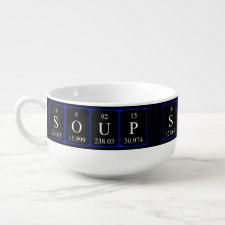
Authors: Kudupoje MB, Klotz JL, Yiannikouris A, Dawson KA, McLeod KR, Vanzant ES
Article Title: Contractile Response of Bovine Lateral Saphenous Vein to Ergotamine Tartrate Exposed to Different Concentrations of Molecularly Imprinted Polymer.
Publication date: 2018
Journal: Toxins
Volume: 10
Issue: (2)
Page numbers: ArticleNo58.
DOI: 10.3390/toxins10020058
Alternative URL: http://www.mdpi.com/2072-6651/10/2/58
Abstract: Ergot alkaloids, in their active isomeric form, affect animal health and performance, and adsorbents are used to mitigate toxicities by reducing bioavailability. Adsorbents with high specificity (molecularly imprinted polymers: MIP) adsorb ergot alkaloids in vitro, but require evaluation for biological implications. Using ex vivo myography, synthetic polymers were evaluated for effects on the bioactivity of ergotamine tartrate (ETA). Polymers were first evaluated using isotherms. Lateral saphenous veins were collected from 17 steers for four independent studies: dose response of ETA, adsorbent dose response, validation of pre-myograph incubation conditions and MIP/ non-molecularly imprinted polymer (NIP) comparison. Norepinephrine normalized percent contractile response to increasing ETA exhibited a sigmoidal dose response (max: 88.47 and log of the effective molar concentration (EC50) (-log [ETA]) of 6.66 ± 0.17 M). Although sample preparation time affected contractile response (p < 0.001), pre-myograph incubation temperature (39 vs. 21 °C, 1 h) had no effect (p > 0.05). Isothermal adsorption showed a maximum adsorption of 3.27E-008 moles mg-1 and affinity between 0.51 and 0.57 mg (R2: 0.83 - 0.92) for both polymers, with no significant difference between polymers (p > 0.05). No significant differences in maximum inhibitory (p = 0.96) and IC50 responses (p = 0.163) between MIP and NIP were noticed. Normalized percent contraction could be predicted from the in vitro adsorption data (R2 = 0.87, p < 0.01), for both polymers. These studies indicate that synthetic polymers are potentially effective adsorbents to mitigate ergot toxicity caused by ergot alkaloids, with little evidence of significant differences between MIP and NIP in aqueous media
Template and target information: ergotamine tartrate, ETA
Author keywords: Ergot alkaloids, myograph, imprinted polymer



Join the Society for Molecular Imprinting

New items RSS feed
Sign-up for e-mail updates:
Choose between receiving an occasional newsletter or more frequent e-mail alerts.
Click here to go to the sign-up page.
Is your name elemental or peptidic? Enter your name and find out by clicking either of the buttons below!
Other products you may like:
 MIPdatabase
MIPdatabase









